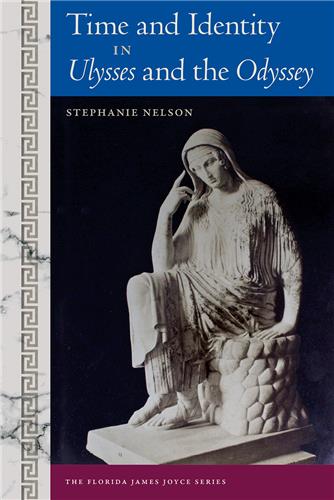Advertising and Commodity Culture in Joyce
Garry Leonard
Foreword by Zack Bowen, Series Editor- Series: The Florida James Joyce Series
"The best book on Joyce I have read in years. . . . [Leonard] offers new insights, novel readings, and creative interpretations on every page, and all in a brilliantly funny, irreverent prose which captures the moment or the character like a Joycean epiphany."--Zack Bowen
Garry Leonard looks in detail at Joyce’s representation of a phenomenon that dominates the contemporary landscape: advertising. Taking readers back to its beginnings, Leonard shows that advertising was a central preoccupation of Joyce, one that helps us unravel his often difficult style.
Building on the work of cultural theorists like Lacan, Foucault, Baudrillard, Irigiray, and others, Leonard examines commodity culture in Joyce's work and demonstrates the ways in which characters use (or are used by) modern advertising techniques to make their own identities more intelligible and to fill the Lacanian "permanent lack" of modern identity.
The commonality of religion and advertising, the use of "kitsch" as a rhetorical device, the commodity market's exploitation of the proletariat, the role of pornography, the impact of advertising's "normative" modes of dress and behavior, and the role of the modern city as a modernist trope are all explored as aspects of Joyce's work or as pressures faced by his characters. As Leonard demonstrates, "culture" in Joyce is the product of a complex response to psychological, sociological, political, economic, and aesthetic pressures. In Joyce, advertising, as a product of that culture, serves both to reinforce the hegemonic discourse of the day and to subvert it.
Excellent work has been done on aspects of commodity culture in Joyce by writers as diverse as Bonnie Kime Scott, Jennifer Wicke, and Brandon Kershner (Joyce and Popular Culture, UPF, 1996), but Leonard's is the first comprehensive study of Joyce and the advertising/commodity nexus, certain to be of equal interest to students and scholars of Joyce, modernism, and cultural studies.
Garry Leonard is associate professor of English at the University of Toronto and author of Reading Dubliners Again: A Lacanian Perspective (1993).
No Sample Chapter Available
"Fascinating and original. . . , Leonard casts new light on how the apparently transitory objects and discourses of an emerging consumer society in fact shape the subjectivity and realities of Joyce's characters."-- James Joyce Literary Supplement
--James Joyce Literary Supplement
"An important contribution to modernist scholarship. . . . Leonard has written a remarkably lively, intelligent, and enthusiastic treatment of a key aspect of modern social life. Indeed, the book's value transcends the narrow field of Joyce scholarship; anyone interested in modernism, consumerism, or popular culture will be enriched and enlightened by this first-rate study."-- Modern Fiction Studies
--Modern Fiction Studies
"An important study of the relationship of Joyce's work to the commodity culture of which they are, in a sense, one product."-- South Atlantic Review
--South Atlantic Review
"Entertaining as well as illuminating." -Irish Studies Review
--Irish Studies Review
"[Leonard] explores a critical territory that is central to cultural studies and should be of great interest to readers concerned to understand the current reach of Joyce criticism as well as to modernists and Joyceans. Leonard writes with verve and wit and with a sense of delighted discovery." Novel
--Novel- A forum on Fiction
"Leonard is one of the best communicators in Joyce studies. He combines lively commentary on the texts with interesting research into their contexts in popular culture and dazzlingly clear and reasonable exposition of Lacanian theory." - The Twentieth Century
--The Twentieth Century











